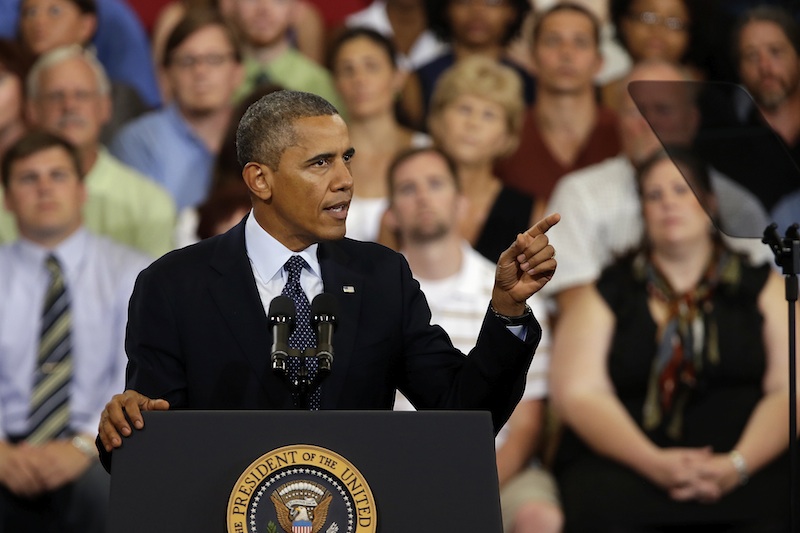The recent delay of an Obamacare rule capping a person’s health care costs illustrates the lose-lose political predicament facing President Obama as he seeks to secure a smooth rollout of his signature legislative achievement.
The move is separate from the widely discussed one-year delay of the employer mandate. It would give businesses, large and small, a yearlong reprieve from a portion of the law that requires them to limit annual out-of-pocket costs under their health plans to $6,350 for individuals and twice that amount for families. In 2014, employers that offer coverage through various plans will only have to abide by the imposed limit for major medical coverage, but not for other coverage like prescription drugs or dental, according the Department of Labor.
The out-of-pocket limit will apply as written on the individual health insurance market.
Consumer protection groups, including major associations that fight heart disease and cancer, are unhappy with the move as it will mean higher co-pays and deductibles for sick Americans until 2015. And Republicans are using it to attack Obamacare.
“It’s one of those damned if you do, damned if you don’t situations,” said Tim Jost, a professor at Washington and Lee University and leading expert on the Affordable Care Act. “If they didn’t, employers would be screaming to Congress about how unreasonable the administration was. But now that they did, consumer groups and others aren’t happy.”
“I’m not happy about it,” he said. “But we’re moving forward.”
The delay, which the administration made public in February, gained widespread attention Tuesday when it was highlighted in a New York Times report. It was quickly seized by the country’s two most powerful Republicans as evidence that Obamacare is unworkable and that its requirement that individuals obtain insurance should also be delayed.
“Once again the president is giving a break to big businesses struggling with his health care law while individuals and families unfairly remain stuck under its mandates,” House Speaker John Boehner (R-OH) said in a statement.
“This is the bottom line: if the president’s health care law is too complex and costly for big businesses and insurance companies to figure out, American families deserve a break from it as well,” he said. “The Senate should take up the House-passed delay of the individual mandate as soon as it returns to work. It’s only fair.”
It’s a politically clever argument — but one that papers over the fact that these employer reprieves are relatively minor portions of the law, while the individual mandate is central to its functionality. But more importantly, the move and its fallout provide a telling example of the administration’s no-win political situation in smoothing out the edges of the law’s rollout.
“Another Obamacare Broken Promise,” blared an email blast from the office of Senate Minority Leader Mitch McConnell (R-KY).
The Affordable Care Act contains a slew of regulations and mandates on individuals and businesses in order to make the swath of benefits under the law economically feasible. Providing some groups a grace period, whether or not they deserve it, invariably inflames other constituencies who want their own special treatment. Multiple labor unions, for instance, were furious that the administration gave large employers a reprieve but didn’t carve out separate exemptions they’ve been asking for.
And conservative lawmakers and advocates, eager to disrupt and discredit Obamacare, can easily exploit the public’s lack of knowledge about the complex law and use these moves to paint it as a train wreck waiting to happen. The GOP’s anxiety is rising as the law’s major components are set to take effect in the coming months, and President Obama’s own anger and frustration with Republicans has reached a boil.
“Their number priority, the one unifying principle in the Republican Party at the moment is making sure that 30 million people don’t have health care,” Obama told reporters at a televised news conference Friday. “There’s not even a pretense now that they’re going to replace it with something better. The notion is simply that those 30 million people or the 150 million who are benefiting from the other aspects of affordable care, will be better off without it. That’s their assertion. Not backed by fact, not backed by any evidence. It’s just become an ideological fixation.”
All the political bickering is just a prelude. The real judgment of Obamacare will be rendered after its most important benefits and regulations take effect next year.






